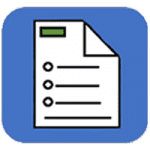Managing cheatgrass by putting what we know into practice: Briefs for 2018 Webinar Series

Conversion of native rangelands to cheatgrass, and subsequent impacts on wildfire regimes, are one of the most challenging threats to sagebrush ecosystems today. The widespread and complex nature of the problem and lack of clarity on effective management actions are often barriers to implementing meaningful treatments and practices to reduce risks. Although there is no silver bullet, combining cheatgrass reduction treatments with promotion or restoration of perennial vegetation in an integrated, adaptive management framework can move the needle toward maintenance and recovery of functioning ecosystems. This webinar series will provide information on integrated management approaches using specific strategies and proven tools.
Webinar briefs and recordings linked below:
Cheatgrass control methods and their impacts on perennial grasses: A systematic review spanning 64 years (Tom Monaco, ARS) –
Webinar summary (print)
Webinar recording (video)
Herbicides for cheatgrass: What works? (Richard Lee, BLM)
Webinar summary (print)
Webinar recording (video)
Grazing to maintain perennial grasses and reduce nonnative annuals (Kirk Davies, ARS)
Webinar summary (print)
Webinar recording (video)
Capitalizing on strategic opportunities: Examples from the field (Brian Mealor, UW and Mike Pellant, BLM-retired)
Webinar summary (print)
Webinar recording (video)
Ecologically based invasive plant management: Lessons from the area-wide demonstration project (Roger Sheley, ARS)
Webinar summary (print)
Webinar recording (video)
Brought to you by the Great Basin Fire Science Exchange, in partnership with the USDA/NRCS, Sage Grouse Initiative, BLM, ARS, and FS.

